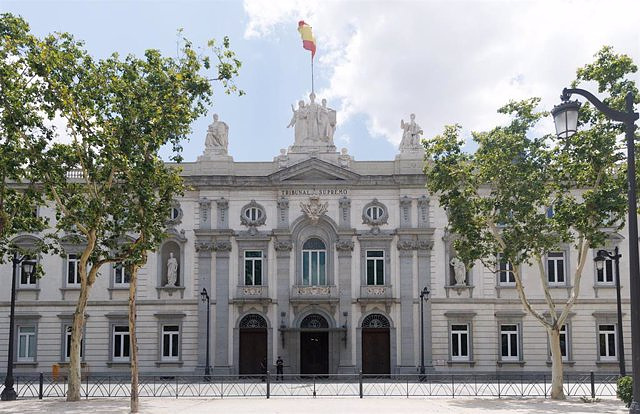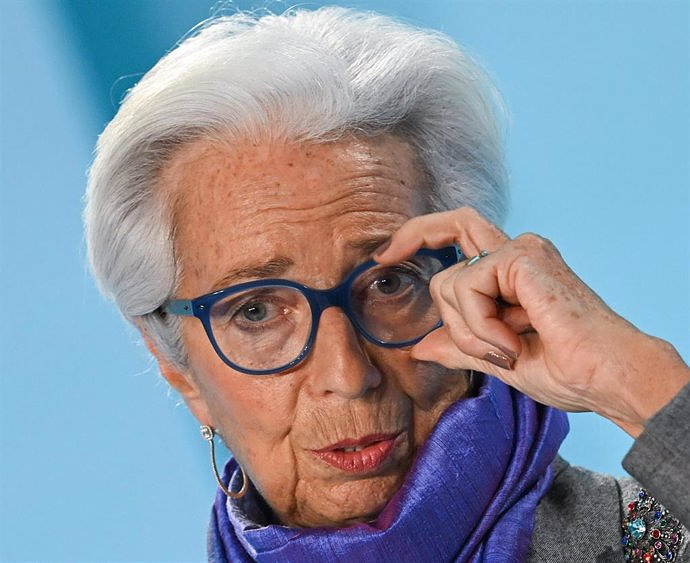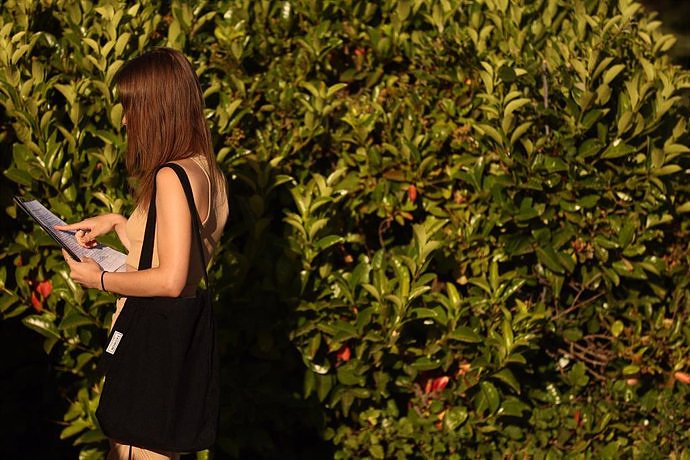Reduces the sentence from 14 to 12 years for one of them who raped her twice and from 7 to 6 for the other, who raped her once
MADRID, 28 Ago. (EUROPA PRESS) -
The Supreme Court has reduced, in application of the so-called "only yes is yes" law, the prison sentences imposed on two brothers who got drunk and raped a minor who was going to their house in Madrid to do babysitting work.
The magistrates have agreed to reduce the sentence of one of them from 14 to 12 years for raping the minor twice; the other has had his sentence reduced from 7 to 6 years in prison for once raping the young woman, who was 17 years old at the time.
The Supreme Court has modified the sentences against the criteria of the Prosecutor's Office, which understood that it was not appropriate to apply the Organic Law of Comprehensive Guarantee of Sexual Freedom retroactively because it considered the sentences imposed "proportionate". In a sentence, to which Europa Press has had access, the court has explained that, with the new law, the sentence range is lower and the sentence imposed must be lowered.
In the resolution, for which Judge Carmen Lamela has been a rapporteur, it is stated that the events date back to April 2017, when the minor went -as her aunt had ordered her- to the defendant's house to work as a caregiver of a two month old baby. After explaining to her what her work would consist of, the man invited her to drink and began to touch her over her clothes, "despite the fact that she (the minor) asked him to stop saying that she wanted to leave."
As stated in the sentence, "the defendant, far from stopping, in order to cloud his senses, supplied him with several glasses of beer, making the minor reach a state of intoxication." That's when he raped her.
Two days later, the minor's aunt insisted that she should go back to work because "she had become engaged to the baby's mother." The young woman "felt compelled to return so as not to disappoint her aunt and because she needed the job," so she returned. On this occasion, the man again offered the minor alcoholic beverages and proposed to have sex. She refused.
That same day, the brother of the main defendant was in the house, who took the minor to his room against her will. She tried to resist, but her intoxicated state was such that she didn't make it. The man raped her. Her brother entered the room and took the minor to another room to rape her as well.
"Later, knowing that the baby's mother was about to arrive at the home, both defendants left the minor in the portal." She was found "wandering on the public road" and was treated by the SAMUR.
The Provincial Court of Madrid sentenced the first to 14 years in prison for two crimes of rape. The second was sentenced to 7 years in prison, also for rape. Both brought their case before the Superior Court of Justice of Madrid, which dismissed their appeals and confirmed the sentences on appeal.
After the 'only yes is yes' law came into force, the brothers were asked if they were going to request a review of the sentences. The Supreme Court has estimated the resources and has annulled the contested ruling.

 Exploring Cardano: Inner Workings and Advantages of this Cryptocurrency
Exploring Cardano: Inner Workings and Advantages of this Cryptocurrency Seville.- Economy.- Innova.- STSA inaugurates its new painting and sealing hangar in San Pablo, for 18 million
Seville.- Economy.- Innova.- STSA inaugurates its new painting and sealing hangar in San Pablo, for 18 million Innova.- More than 300 volunteers join the Andalucía Compromiso Digital network in one month to facilitate access to ICT
Innova.- More than 300 volunteers join the Andalucía Compromiso Digital network in one month to facilitate access to ICT Innova.-AMP.- Ayesa acquires 51% of Sadiel, which will create new technological engineering products and expand markets
Innova.-AMP.- Ayesa acquires 51% of Sadiel, which will create new technological engineering products and expand markets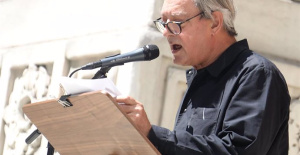 Prominent American writer Paul Auster dies at 77 from lung cancer
Prominent American writer Paul Auster dies at 77 from lung cancer RELEASE: Rendeavor Expands High-Speed Internet Access to Local Communities Around Tatu, Kenya
RELEASE: Rendeavor Expands High-Speed Internet Access to Local Communities Around Tatu, Kenya Real Madrid saves a draw in Munich and will appeal again to the Bernabéu
Real Madrid saves a draw in Munich and will appeal again to the Bernabéu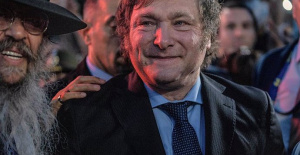 The Congress of Argentina approves the omnibus law that allows the privatization of some public companies
The Congress of Argentina approves the omnibus law that allows the privatization of some public companies How Blockchain in being used to shape the future
How Blockchain in being used to shape the future Not just BTC and ETH: Here Are Some More Interesting Coins Worth Focusing on
Not just BTC and ETH: Here Are Some More Interesting Coins Worth Focusing on Valencia unanimously approves the ordinance to allocate spaces to test innovative initiatives
Valencia unanimously approves the ordinance to allocate spaces to test innovative initiatives UPV researchers promote a paid master's degree as a "talent factory" in integrated photonics
UPV researchers promote a paid master's degree as a "talent factory" in integrated photonics A spin-off of the UV works on obtaining high-resolution 3D biomedical images in real time
A spin-off of the UV works on obtaining high-resolution 3D biomedical images in real time They create a bank of machinery sounds to prevent breakdowns through artificial intelligence
They create a bank of machinery sounds to prevent breakdowns through artificial intelligence A million people demonstrate in France against Macron's pension reform
A million people demonstrate in France against Macron's pension reform Russia launches several missiles against "critical infrastructure" in the city of Zaporizhia
Russia launches several missiles against "critical infrastructure" in the city of Zaporizhia A "procession" remembers the dead of the Calabria shipwreck as bodies continue to wash up on the shore
A "procession" remembers the dead of the Calabria shipwreck as bodies continue to wash up on the shore Prison sentences handed down for three prominent Hong Kong pro-democracy activists
Prison sentences handed down for three prominent Hong Kong pro-democracy activists ETH continues to leave trading platforms, Ethereum balance on exchanges lowest in 3 years
ETH continues to leave trading platforms, Ethereum balance on exchanges lowest in 3 years Investors invest $450 million in Consensys, Ethereum incubator now valued at $7 billion
Investors invest $450 million in Consensys, Ethereum incubator now valued at $7 billion Alchemy Integrates Ethereum L2 Product Starknet to Enhance Web3 Scalability at a Price 100x Lower Than L1 Fees
Alchemy Integrates Ethereum L2 Product Starknet to Enhance Web3 Scalability at a Price 100x Lower Than L1 Fees Mining Report: Bitcoin's Electricity Consumption Declines by 25% in Q1 2022
Mining Report: Bitcoin's Electricity Consumption Declines by 25% in Q1 2022 Oil-to-Bitcoin Mining Firm Crusoe Energy Systems Raised $505 Million
Oil-to-Bitcoin Mining Firm Crusoe Energy Systems Raised $505 Million Microbt reveals the latest Bitcoin mining rigs -- Machines produce up to 126 TH/s with custom 5nm chip design
Microbt reveals the latest Bitcoin mining rigs -- Machines produce up to 126 TH/s with custom 5nm chip design Bitcoin's Mining Difficulty Hits a Lifetime High, With More Than 90% of BTC Supply Issued
Bitcoin's Mining Difficulty Hits a Lifetime High, With More Than 90% of BTC Supply Issued The Biggest Movers are Near, EOS, and RUNE during Friday's Selloff
The Biggest Movers are Near, EOS, and RUNE during Friday's Selloff Global Markets Spooked by a Hawkish Fed and Covid, Stocks and Crypto Gain After Musk Buys Twitter
Global Markets Spooked by a Hawkish Fed and Covid, Stocks and Crypto Gain After Musk Buys Twitter Bitso to offset carbon emissions from the Trading Platform's ERC20, ETH, and BTC Transactions
Bitso to offset carbon emissions from the Trading Platform's ERC20, ETH, and BTC Transactions Draftkings Announces 2022 College Hoops NFT Selection for March Madness
Draftkings Announces 2022 College Hoops NFT Selection for March Madness